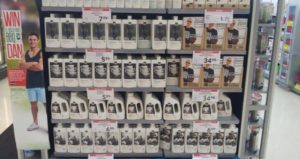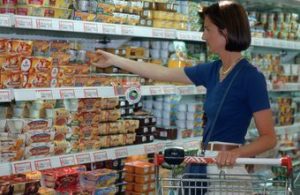Module Marketing Blog
Brand • Export • Marketing • Strategy • Amazon • ContentBefore You Start Selling to Supermarkets
What questions to ask yourself
Before you start trying to get into a supermarket there are a few things that you need to consider when selling to supermarkets. In this blog post you will not learn them all, but it is a place to start. With any business plan you need to outline your goals and how you think it is going to work. The real-world process will ultimately dictate what is going to work in the same way that your customer will ultimately dictate what your brand is, but nonetheless you have to start somewhere.
Part 1: What involvement do you want to have in selling?
Whether you are a craft business selling your product at local markets on the weekends and have a few local shops selling you in town, or a factory that has been private labeling and making for other brands for years, you have to consider how you are going to sell to the local, regional, or national supermarket. There are few routes worth thinking about when considering selling to supermarkets.
Route A: Get into your car and hit all the local New Worlds and get to know the buyers. Talk to them about what the competition is doing right or wrong, strike up a relationship and find out what it would take for them to give you a shot.
Once you get into the store then it is on you to support the brand with marketing initiatives, buyback programs etc. Now go and do this for every New World you can get to, make a routine out of selling and supporting your new retail partner(s).
Route B: Start talking to distributors. If you cannot find someone to help you start selling into supermarkets the start by searching the web. On the downside some of the best distribution channels that I have worked with do not have amazing web presence. This is a call-to-action to go right back into your local New World, strike up a a conversation with the category manager, and find our who the think are the best distributors.
Step 2: What involvement do you want to have in distribution?
When we say distribution here we mean the actual picking, packing, and delivering of your products. Lets take the same craft business scenario above. If you are a small batch maker with plenty of time then it is not outside the realm of possibility to deliver and stock your own products onto the shelves. If you are a maker with higher volumes in mind and your margin can support a middle person to clip at bit of the ticket, then by all means find a partner.
 The steps are very much the same as the above methods for selling and if you have been paying attention then I am sure you noticed that a distributor helps with both. There are also insights that a distribution operation can help with if they are good.
The steps are very much the same as the above methods for selling and if you have been paying attention then I am sure you noticed that a distributor helps with both. There are also insights that a distribution operation can help with if they are good.
Even though a distribution agent can help solve some problems with sales and putting product on shelves there is nothing like getting out there to sell and stock things yourself. Choosing the right method greatly depends on what your resources, margins, and horizontal growth goals are. In fact, if you want to cover an entire country then you will absolutely need distribution and shelf stocking support.
Step 3: Preliminary Questions To Ask Yourself Before Selling To Supermarkets
- Want to do the sales in-house – meaning you or someone that works with you will go ‘on the road’?
- Do you want to handle deliveries – same as above, who is going to do the dirty work?
- Do you arrange in-store marketing/tastings?
- What preparations do you need to make in order sell? (Samples, Brochures, Pricing and your ‘bottom line’ price, Sales pitch – how are you different, better, more expensive, cheaper?)
- How many stores do you want to be in?
- Which ones? Progressive, Foodstuffs, both?
- How to outdo the competition
- and on and on…
We will add to this list as questions and comments come up. Before you start trying to get into a supermarket there are a few things that you need to consider when selling to supermarkets. With any business plan you need to outline your goals and how you think it is going to work.


